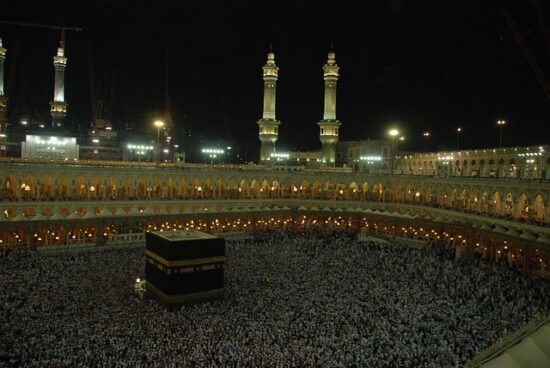One million Muslims begin the Hajj pilgrimage to Mecca.
One million pilgrims from around the world gathered on Thursday in the holy city of Mecca in Saudi Arabia to perform the initial rites of the hajj.
It also marked the largest Islamic pilgrimage – a mainstay of Islam – since the pandemic caused by COVID-19 caused the annual event to be cancelled.
Thus, this is considered a scene that inspires hope – and relief – for Muslims around the world.
The Hajj is a once-in-a-lifetime duty for all Muslims physically and financially able to make the journey, which takes believers along a path traveled by the Prophet Muhammad some 1,400 years ago.
Pilgrims spend five days performing a series of rituals intended to bring them closer to God.
This includes praying around the cube-shaped Kaaba, the holiest shrine in Islam. In the center of the courtyard of the Great Mosque on Thursday, thousands of pilgrims gather around the Kaaba.
Pilgrims appeared to “throw off their guard against COVID-19” this year as they packed the Grand Mosque – in sharp contrast to the social distancing and mask requirements of the past two years.
But there were still signs of vigilance.
Also, thousands of medical workers were available to help those in need.
This year, the Hajj is open to only 1 million foreign and domestic pilgrims who have been fully vaccinated against the coronavirus, who have tested negative for COVID-19 and are between 18 and 65 years old.
The authorities estimate that 85% of them came from abroad.
While this year’s attendance is well below the pre-pandemic influx of 2.5 million pilgrims, it represents a significant step closer to normal after the kingdom limited the event to a small number of Muslim residents for the past two years.





